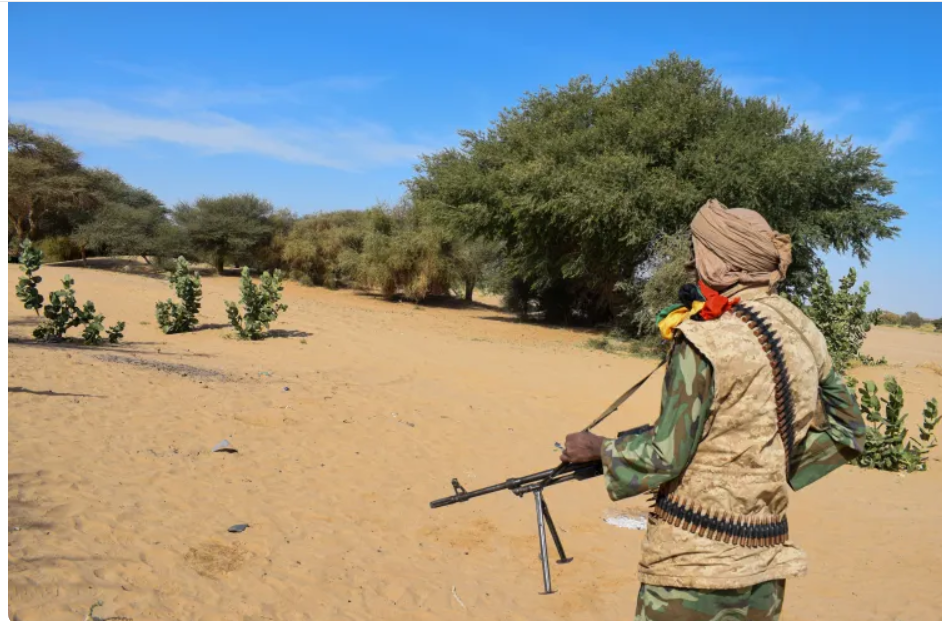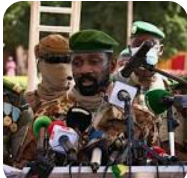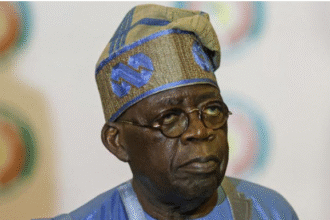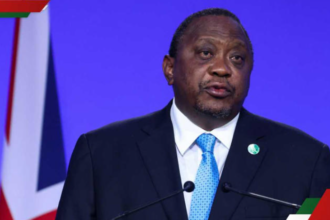By Lamin Guèye
BAMAKO, MALI – Mali’s armed forces have announced they killed 80 fighters in a significant counter-operation following a series of coordinated and high-quality attacks on military posts across the West African nation, claimed by an al-Qaeda affiliate.
The military’s response comes after Jama’at Nusrat al-Islam wal-Muslimin (JNIM), an al-Qaeda-linked group, earlier claimed responsibility for the “coordinated and high-quality attacks,” stating they had seized control of three barracks and dozens of military positions.
In a video statement broadcast on the armed forces’ television channel, army spokesperson Souleymane Dembele declared, “The enemy suffered significant losses in every location where they engaged with the security and defense forces.” The bulletin displayed visuals of fallen rebels, their weapons, motorbikes, and vehicles as evidence of the military’s success.
The Malian army confirmed that the initial attacks took place simultaneously across seven towns in the central and western regions of the country on Tuesday. These included Diboli in western Mali near the border with Senegal, alongside the nearby towns of Kayes and Sandere. Further attacks were reported in Nioro du Sahel and Gogoui, northwest of the capital Bamako near the Mauritanian border, and in Molodo and Niono in central Mali, with all locations reportedly “struck by shellfire.”
Residents and a local politician corroborated reports of attacks in at least four of the towns. A resident in Kayes described the harrowing experience, saying, “We woke up in shock this morning. There’s gunfire, and from my house I can see smoke billowing towards the governor’s residence,” describing the gunfire as “intense.” Another resident reported sheltering at home as the assault raged on.
The incidents bear the hallmarks of other recent operations by JNIM, which has conducted similar assaults on military positions in both Mali and neighboring Burkina Faso.
Mali, governed by a military junta since 2020, has been struggling for over a decade against violent groups linked to ISIL (ISIS) and al-Qaeda, while also contending with a longer history of Tuareg-led rebellions in its northern regions.










